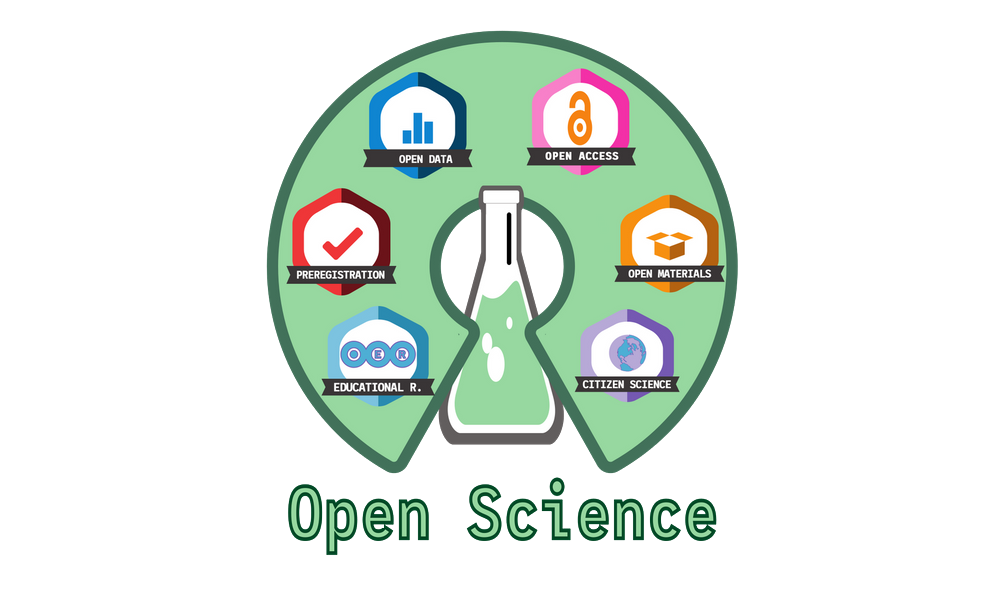
Open Science Key Terms
Open Science Key Terms https://opusproject.eu/wp-content/uploads/2023/05/08-20-Open-Science.webp 1000 600 Open and Universal Science (OPUS) Project Open and Universal Science (OPUS) Project https://opusproject.eu/wp-content/uploads/2023/05/08-20-Open-Science.webpOpen science is a growing movement in the scientific community that aims to increase transparency and accessibility in research. It is an approach that seeks to make scientific knowledge freely available to everyone, without restrictions or barriers. In this article, we will explore some of the key terms in open science and their significance in promoting scientific progress.
- Open Access: Open access is a principle that aims to make scientific research freely available to everyone, without any restrictions or barriers. This means that research papers, data, and other scholarly works can be accessed and used by anyone, regardless of their location or affiliation. Open access promotes collaboration, innovation, and progress by removing financial and legal barriers to scientific knowledge.
- Open Data: Open data is a term that refers to research data that is made publicly available for use by anyone, without restrictions on its use or redistribution. This data can be used to verify research findings, develop new theories and models, and facilitate collaboration across different fields of study. Open data promotes transparency and accountability, and allows for more rigorous and reproducible scientific research.
- Open Source: Open source is a term that refers to software that is made available under an open license, which allows others to use, modify, and redistribute it freely. Open source software is often developed collaboratively by a community of users and developers, who work together to improve and refine the software. Open source promotes innovation and collaboration, and has led to many breakthroughs in scientific computing and data analysis.
- Reproducibility: Reproducibility refers to the ability of researchers to reproduce the results of a study using the same methods and data. Reproducibility is essential for scientific progress, as it ensures that research findings are accurate and reliable. Open science promotes reproducibility by making research data and methods available to others, allowing them to verify and reproduce the findings.
- Transparency: Transparency refers to making the research process and data collection methods as clear and open as possible, allowing for greater scrutiny and reproducibility. Transparent research practices include making research protocols and methods publicly available, and providing detailed descriptions of the data collection and analysis procedures. Transparency promotes accountability and accuracy in scientific research, and helps to build trust and confidence in scientific findings.
- Open Peer Review: Open peer review is the practice of making the peer review process transparent and open to the public, allowing for greater accountability and transparency. Open peer review involves making reviewer comments and author responses publicly available, and allowing readers to comment on the review process. Open peer review promotes transparency and accountability in scientific publishing, and helps to ensure that research findings are accurate and reliable.
- Open Education: Open education is the practice of making educational resources and materials openly available to everyone, without restrictions on access or use. Open education promotes accessibility and equity in education, and allows learners to access high-quality educational resources regardless of their location or background. Open education also promotes collaboration and innovation, as educators and learners can share resources and collaborate on projects.
- Open Innovation: Open innovation is the practice of making research and development processes openly accessible, allowing for collaboration and the sharing of ideas and resources. Open innovation promotes creativity and innovation by allowing researchers and developers to build on each other’s work and ideas. Open innovation also promotes collaboration across different fields of study, which can lead to breakthroughs in scientific research and technological development.
- Open Collaboration: Open collaboration is the practice of working together in a transparent and open manner, with a focus on sharing resources, knowledge, and expertise. Open collaboration promotes creativity and innovation, as collaborators can build on each other’s ideas and expertise. Open collaboration also promotes inclusivity and equity, as it allows people from different backgrounds and locations to work together on common goals.
- Open Science Policy: Open science policy is a set of guidelines and principles that encourage
By removing barriers to knowledge and promoting open practices, open science has the potential to accelerate scientific progress and benefit society as a whole. The key terms in open science, such as open access, open data, reproducibility, and transparency, are essential components of this approach. As more researchers, institutions, and policymakers embrace open science, we can expect to see more innovative and impactful scientific discoveries that benefit humanity.
Image: The American Ceramic Society
- Posted In:
- Open Science News




